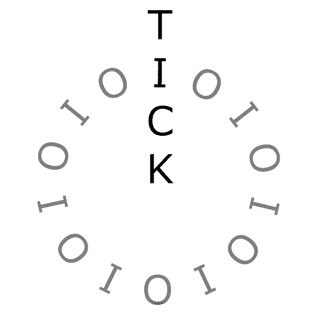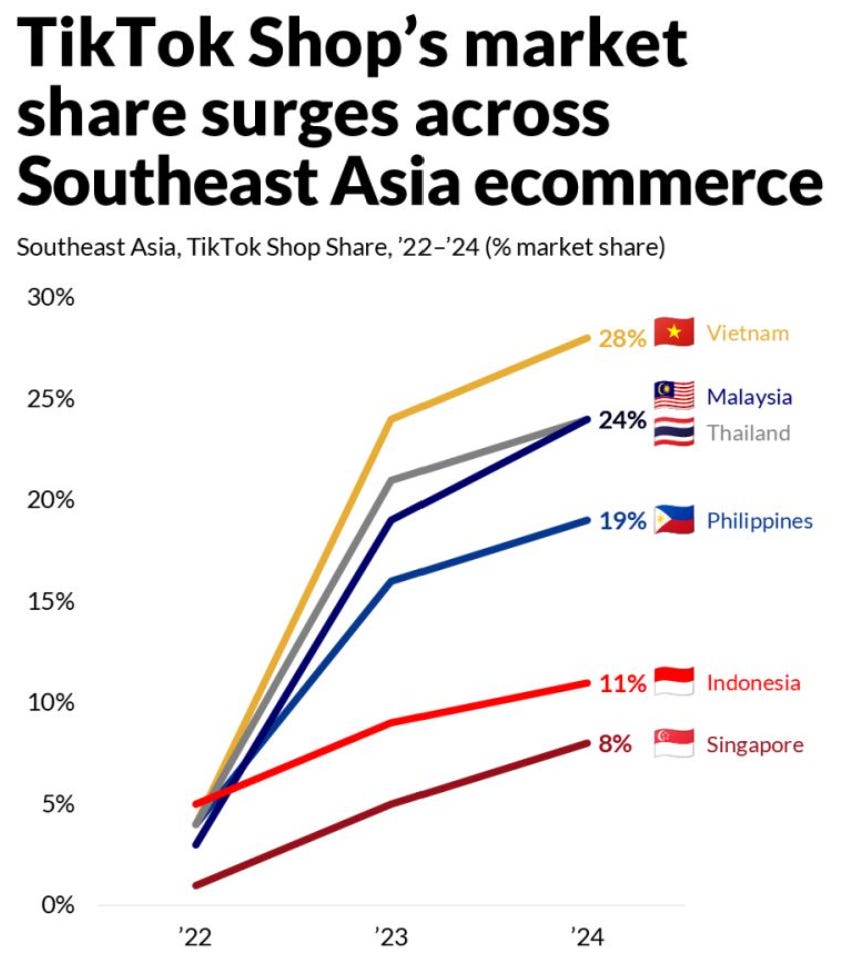India tried to make water a status symbol this week and Reddit spat it out. Bhumi Pednekar’s ₹200 Backbay bottle met a comments section chanting “accessible for whom” and “you can’t brand tap,” and that verdict matters: if packaging is the product, your launch now lives or dies in the comment box.
Compared to last week, this week's ecommerce news got into high gear. Let’s dive in.
🗞️Marketplace Buzz
Swiggy’s Instamart sugar rush week came off Zepto’s meal. Blinkit still owns the aisle at 52% NMV (₹845 cr), but Instamart just sprinted back to #2 with 25% (₹405 cr), nudging Zepto to 23% (₹375 cr), per this market-share snapshot. It looks like Swiggy pressed the gas while Zepto guarded its profit. It worked this week; now the question is stamina: can Instamart keep pace without torching unit economics?
Qcomm’s 48-hour FMCG clock is making brands sweat, forcing consumer brands to run like kitchens: refill every two days, smaller batches, faster NPD, and store-level demand sensing. The upside is lower stockouts and fresher demand, the catch is cost: tighter vendor SLAs, more returns risk, and higher logistics sensitivity. Winners integrate demand data into planning; laggards keep monthly rhythms and get left behind.
Quick fashion is ops, not a tab. As this Elevation capital note shows, Young Indians are discovering quick fashion through spontaneous moments. The try-and-buy route cuts RTO to 15% but spikes rider idle time; margins hold only if AOV and add-ons rise. Verticals like Slikk, KNOT, ZILO, NEWME and Myntra’s M-Now win on dark stores, fit-first flows, and hyperlocal merchandising. Horizontals can’t fake that stack. Scale hinges on SOR discipline and brand supply; miss the mix and you drown in returns. Plenty to unpack in this awesome note.
eKart’s late start in the qcomm race is double trouble. Flipkart flirted with quick commerce, then woke up late. By the time Minutes rolled out, incumbents had locked dark-store density, hyperlocal merchandising, and habit. eKart’s network moves parcels well, but fashion-speed replenishment and city-by-city SLAs need a different muscle. The catch-up script is simple: build density, own availability, and stomach the burn long enough to change consumer default.
Nykaa’s Q1 FY26 profit looks impressive, but the engine is not a V6 Mustang Cobra. Net profit up 142% to ₹23 crore, 23% revenue growth to ₹2,155 crore; EBITDA 6.5% vs 5.5%. The lift comes from owned labels hitting 18% of beauty GMV, while fashion is at ₹171 crore. That mix fattens margin today, but it raises a huge risk: dependence on private label to mask slow fashion.
🍕D2C Snippets
Honasa’s Q1 FY26 headline grows, but the profit engine sputters: revenue ₹595 crore (+7.4%) and PAT ₹41.3 crore (+2.7%) lean on other income, while core margins strain. With ₹0.95 spent per ₹1 earned and costs up 8% to ₹563 crore (procurement 30%), the mix isn’t compounding; unless repeat cohorts deepen, festive discounting will erase the leverage.
Ace Blend raised $3.3 million to scale protein powders and functional drinks built on a “real results” pitch with global R&D muscle. The company reports that revenue increased from ₹1.9 crore to a projected ₹55 crore in three years. The bet now is reorder, not reels. Nutrition doesn’t scale on Instagram; it scales on repeat and retail velocity. If taste, tolerance and adherence drive repeat, Fireside’s cheque compounds; if not, CAC eats the powder.
Graas AI has raised $9 million, but the only metric that matters now is whether it moves revenue, not dashboards. Expect paid pilots under procurement scrutiny, with proof demanded on AOV, repeat rate, and stock turns before budgets unlock. If the pitch translates into lift, contracts stick; if not, the AI gloss peels fast.
Fraganote wants to turn niche perfume into a Friday-night flex, raising $1 million to expand its line and pilot offline sniff bars. The vibe is discovery-to-loyalty: sampler kits that hook, travel minis that spread, in-store trials that convert to full-size. Nail one signature and you unlock refill-ready fans, festive gift bundles, and creator collabs that make scent a scroll-stopper.
Relaxo just gave everyday footwear a home stadium, launching its own D2C site to turn casual sliders and school shoes into direct relationships. Expect easy size swaps, store-powered delivery, and small-batch drops that feel like upgrades. Marketplaces still drive reach; this is where Relaxo builds first-party love, nudges bundles, and turns price shoppers into repeat fans.
Aditya Birla’s TMRW, the ABFRL brand house that buys and scales digital-first labels just added enterprise-grade nitro to its brand house, raising ₹437 Cr. The promise is speed: automated workflows across merchandising, fulfilment, and customer service. If the stack hums, onboarding new labels gets smoother, CX gets sharper, and ABG’s digital flywheel spins quicker where it counts.
ZenZebra is turning offices, gyms, and campuses into mini high streets, raising a pre-seed led by Rukam Capital to plant curated brand pods where people already hang out. Think coworking counters, hotel lobbies, and try-first kiosks with QR-to-buy and instant pick-up. Nail the curation and you convert dead corners into discovery aisles and everyday footfall into refill-friendly regulars.
Lifelong Online just banked $13 million at a $500 million valuation to spin its mass-market appliances flywheel: mixers, air fryers, trimmers, treadmills. The play is boring on purpose: own search on marketplaces, add D2C for warranties and spares, bundle kitchens, and turn service into stickiness. Do this right and coupons become backup, not the engine.
Kimirica is turning turndown treats into cart regulars, raising $15 million to take its hotel-chic bath and body from suites to sinks at scale. Expect 10+ experiential stores across India and the Middle East, ecom still ~80% of revenue, and a 600,000 sq ft Indore plant powering amenities and refills; nail the scent and you unlock gift kits, minis, and repeat rituals.
📢Power Talk
"Since our IPO, we have consistently delivered mid-20s growth at a consolidated level. Our cumulative customer base now stands at 45 million, reflecting the growing trust and adoption of our platform.” Falguni Nayar- Founder and CEO of Nykaa.
📚Reads and Recos
For the first time, UPI broke out merchant-category spend, and it’s a reality check: India’s UPI diet is food and EMIs: groceries lead volume while debt collection quietly dwarfs discretionary with ₹93.9k cr on just 16 cr transactions, as this LinkedIn post maps July spend. The sleeper stat is 7 cr monthly swipes at beauty and barber shops, grooming is a weekly ritual. Also note games and utilities outpacing marketplaces.
This LinkedIn piece takes a magnifying glass and looks deep into addressable affluent online consumers. Your market is not “All India,” it is two pin codes, so ask the only question that moves revenue fast: which offline shelf is missing within 1 km of your richest cohort, and how do you mirror it online? Build that shelf with city-first assortments, store pick-up, and refill bundles, buy high frequency in those pockets, and watch your ₹100 crore ceiling turn into a baseline.
TikTok Shop isn’t a channel, it’s checkout grafted onto an algorithm, and that’s why legacy carts feel slow while the feed prints orders, as this quick thread shows. Operator move: treat creators like your field sales, pay on assisted conversions, and prioritize three formats that sell now: unbox, how-to, deal stack. If your PDP can’t beat the feed on speed and trust, route traffic to shoppable.
India’s premiumisation wave is real, powered by income upgrades and easy credit, as this Chiratae Ventures thesis lays out: $10k-plus earners growing 12%+, card spends at ₹1.87 lakh crore on 111M cards, iPhone shipments up 50%, premium cars up 18%, term deposits at ₹205 lakh crore. This is the India where aspiration meets access, and the real race is capturing Tier 1 and 2 upgrades through discovery and the last mile.
🔥That’s all for this week! As always, share this with your fellow D2C hustlers, and let’s keep the community growing.
PS: Folks at some companies have told us this newsletter is almost mandatory weekly reading for their teams 🥰. If your company is not in on it yet, get your teams on the latest in the e-commerce space every week.








